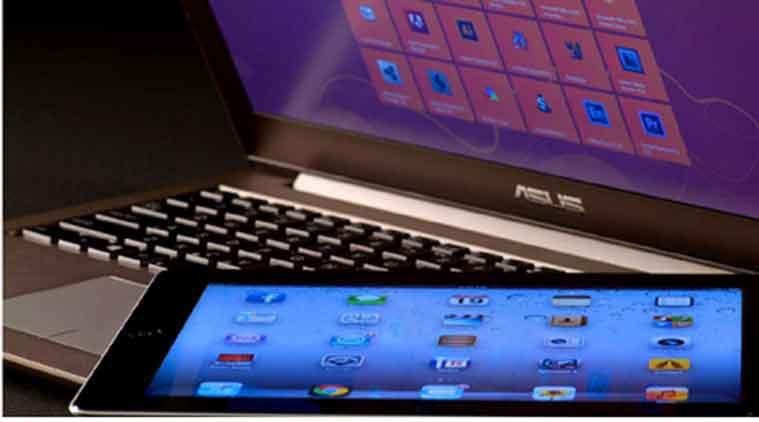What is the electronic device ban: Everything you need to know
British officials followed their US counterparts in imposing the indefinite ban on in-flight electronic devices
 Cellphones and medical devices meanwhile are exempted from the ban. (Representational Image)
Cellphones and medical devices meanwhile are exempted from the ban. (Representational Image)
Following instructions by US security officials, several Middle Eastern and African airlines on Tuesday temporarily banned electronic devices such as laptops, tablets, cameras and DVD players in flights heading to US cities. And it seems that the ban isn’t limited to the US. Sky News had reported that even the UK government are set to impose a ban on passengers carrying certain electronic devices on flights from certain Middle-Eastern countries. In both US and UK, these devices would be banned for in-flight usage and in carry-on bags. The reason for the US government’s ban was not immediately clear and US security officials would not comment. British officials also did not provide an immediate explanation.
What is the electronic device ban?
The restriction on use of electronic devices inside aeroplanes would be generally imposed on devices larger than a smartphone – tablets, laptops, cameras and DVD players. Several hand-held gaming consoles and e-readers are also among the devices that would be banned. The ban doesn’t include larger smartphones such as the Samsung Galaxy S7 Edge and the iPhone 7. While the UK government’s ban would apply to direct flights from six countries, the US ban includes eight countries.
The reasons for the ban have not been explained by US officials, though according to the Department of Homeland Security it was based on “evaluated intelligence”. It is believed that intelligence officials fear that terrorist organisations such as the al-Qaeda could be ‘experimenting’ with turning laptops into bomb
Sky News on the other hand reported that security sources have said the details of the UK ban might differ from the US government’s measures.
Which airports are affected and what routes will the ban be imposed on?
The US government’s ban would apply to direct flights coming into US from 10 airports in Egypt, Saudi Arabia, Jordan, United Arab Emirates, Kuwait, Turkey, Morocco and Qatar. The airlines that are affected by the US ban are Royal Jordanian, EgyptAir, Turkish Airlines, Saudi Arabian Airlines, Kuwait Airways, Royal Air Maroc, Qatar Airways, Emirates and Etihad Airways.
On the other hand, the UK ban applies to direct flights from Turkey, Lebanon, Jordan, Egypt, Tunisia and Saudi Arabia. Apart from eight foreign carriers, six British airlines – British Airways, EasyJet, Jet2, Monarch, Thomas Cook and Thomson – are also affected.
According to reports, the ban is applicable to flights flying into the US cities of New York, Chicago and Detroit and for Montreal in Canada.
How will the electronic device ban affect the Indian traveller?
For many Indians travelling to the US, connecting flights from Abu Dhabi or Dubai are a certainty as part of the trip. In such a situation, the ban would apply to them. This is because the document that explains the security measure refers to the “last point of departure airports”. Since at Abu Dhabi and Dubai, two airports under the US ban, there is a change in flight, the said point of departure for Indians going to US would be considered as these airports. Hence, Indians travelling to US would have to follow the required procedures with regards to the device ban.
For sake of convenience, some travellers might even opt for alternate routes that go through Europe. Also, with the availability of direct flights to US, it could be possible that Indians could choose these direct routes over ones passing through Dubai, Doha or Istanbul.
What would be the risks involved of putting these devices in check-out luggage?
According to the Washington Post, many security experts have doubted the logic of placing laptops in cargo holds rather than on flight. They also reported that the opposition from many journalists and activists come from the fact that they would be risking the safety of sensitive information on such devices. In the Washington Post report, many argued that since that putting laptops in cargo holds would pose as much threat as it would when taken in as carry-on luggage. It is even contended that even if there is a terror threat, such a threat could be even posed from someone travelling from France or some other European country.


- 01
- 02
- 03
- 04
- 05





























